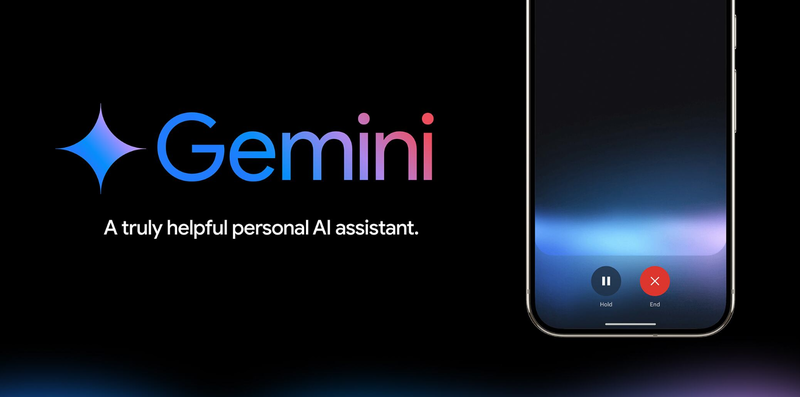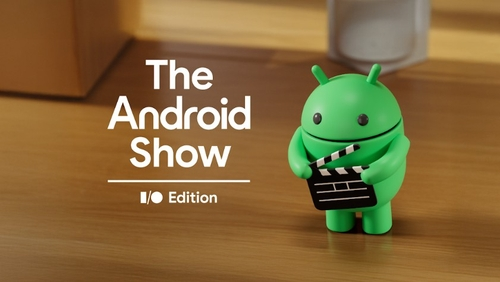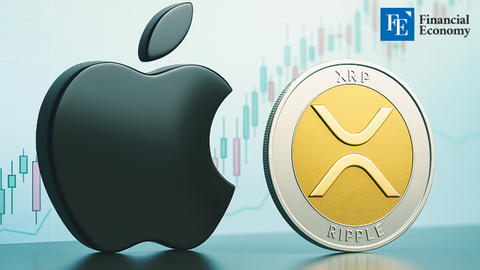Google’s AI ‘Gemini’ Has Little Presence in Korea? Accelerating Market Domination Through the Android Ecosystem
Input
Modified
‘Gemini’ Floods Korean Smartphones Included in SK’s A.Dot as a ‘Multi-LLM Agent’ Integrated into Wear OS, Google TV, and Android XR Platforms

Google’s generative AI “Gemini” is rapidly expanding across the globe, but it appears to be failing to capture significant user attention in South Korea. However, this perception is largely based on surface-level statistics tied to individual user accounts. In reality, analysts say Gemini is deeply embedded across the entire Android ecosystem, steadily solidifying its dominance behind the scenes.
Gemini Gains Ground Globally, But Lags in Perceived Impact in Korea
According to app analytics platform MobileIndex on June 5 (local time), Gemini's monthly active users (MAU) in South Korea last month reached 55,010, a 227% increase from 16,803 the previous month. Compared to 3,501 in May of last year, this represents a fifteenfold rise. However, despite this steep growth, Gemini still remains a niche app in terms of user volume. By contrast, ChatGPT recorded 10.17 million MAUs during the same period—approximately 180 times more users than Gemini.
ChatGPT’s MAUs in Korea surged from around 2.9 million at the end of last year to over 10.72 million in April. Although last month marked its first decline, it still maintains more than 10 million users. Industry analysts believe the launch of GPT-4o's image generation capabilities has driven a spike in paid subscribers. The viral spread of “Studio Ghibli-style” AI-generated profile pictures on social media helped fuel user adoption. According to OpenAI, South Korea now ranks second globally after the U.S. in terms of paid subscribers.
Ecosystem-Wide Expansion Across Devices
Some observers note that the usage gap between Gemini and ChatGPT is especially stark in the Korean market compared to other countries. Yet many experts argue that Gemini is actually penetrating the Korean market more rapidly from a functional and ecosystem standpoint. Unlike a traditional chatbot, Gemini is being embedded across a wide range of Android-powered devices. To expand its domestic presence, Google is increasing Gemini 2.0 supply and has extended support for “Gemini Live”—originally introduced on Samsung Galaxy smartphones—to older models as of April.
SK Telecom has also added Gemini to its A.Dot AI assistant, which features a multi-LLM agent that can interact with multiple language models simultaneously. A.Dot users can select Gemini as the model to respond to their queries, and receive both answers and Google search results in return.
Google plans to replace its existing voice assistant, Google Assistant, with Gemini starting later this year. CEO Sundar Pichai has announced plans to expand Gemini’s global user base to 500 million by the end of 2025, with Android smartphones—like Samsung’s Galaxy line—playing a central role in reaching that goal.

Smartwatches, TVs, and Vehicles: Gemini Everywhere
Google aims to roll out Gemini not just on smartphones but across smartwatches, vehicles, TVs, and headsets, offering a more intelligent and responsive assistant experience. In the coming months, Gemini will be integrated into Wear OS for smartwatches. Gemini will assist users by integrating with apps, answering questions, and recalling important context.
Gemini will also be incorporated into Android Auto and Google Built-In for vehicles. Android Auto connects Android smartphones to a vehicle’s infotainment system, while Google Built-In runs Android Automotive OS natively in the car. Drivers will be able to converse with Gemini naturally—asking for local information, for instance—and receive responses synced with their apps.
Later this year, Gemini will come to Google TV, where it can recommend age-appropriate movies for children or suggest educational YouTube videos. Google also announced plans to bring Gemini to Android XR, a new platform developed in collaboration with Samsung, designed for extended reality (XR) devices like headsets and smart glasses. The first XR headset is expected to launch by the end of the year.
Alongside Gemini's expansion, Google will revamp the Android UI under the design system “Material 3 Expressive” to offer a more personalized user experience (UX) powered by AI. Enhanced scam detection features will also be applied to the default messaging app, while device tracking and family safety tools will be integrated into a new app called Find Hub. These updates are part of Google’s broader effort to significantly strengthen user safety and privacy across its ecosystem.





















